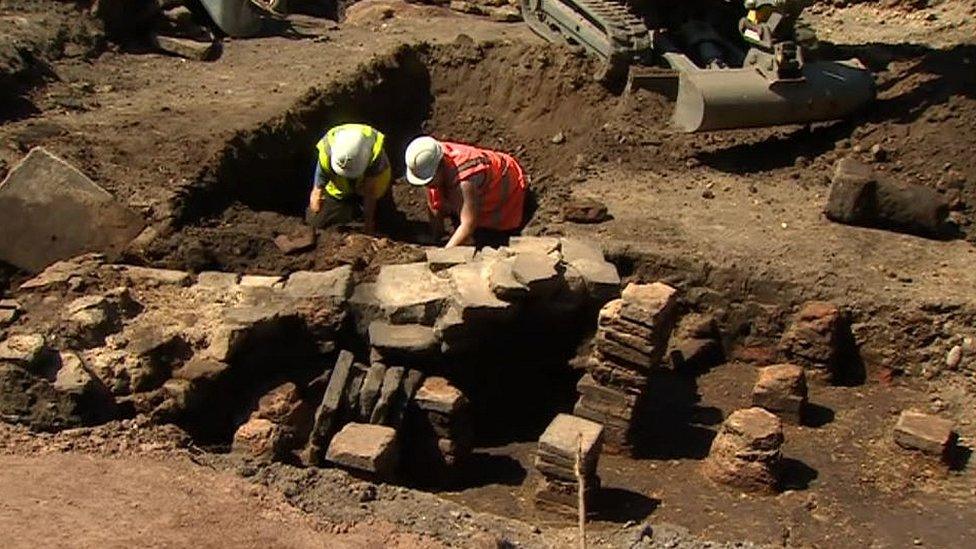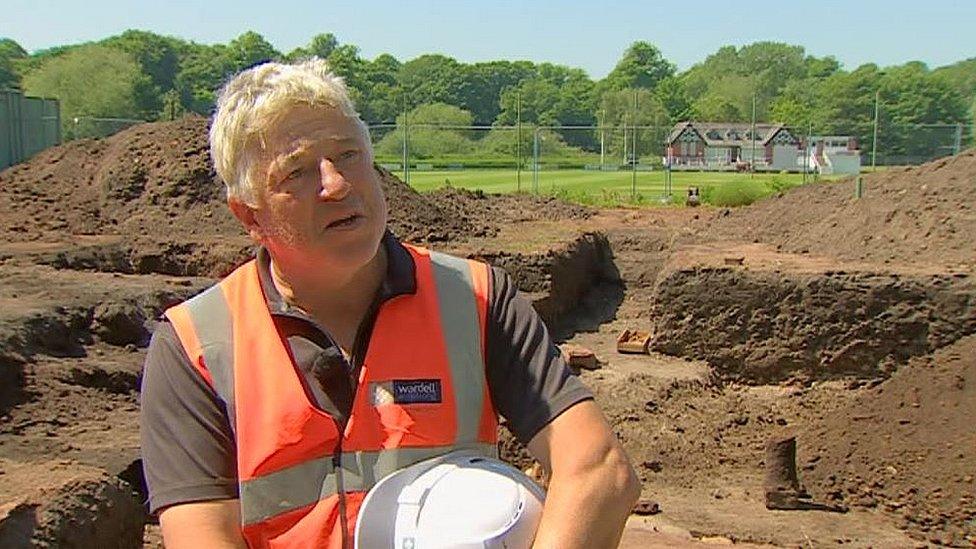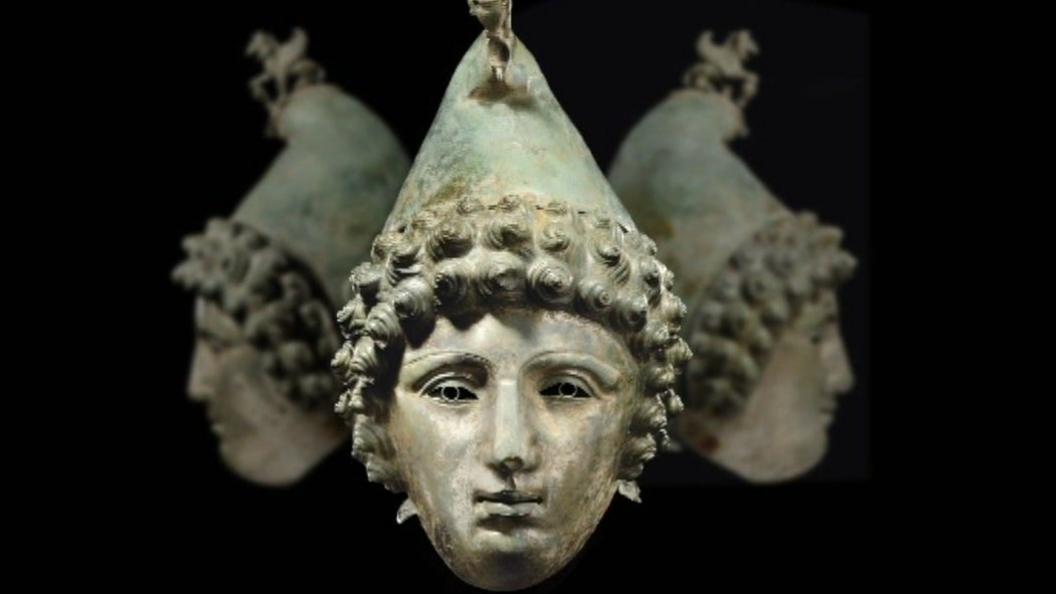Roman bath house found under Carlisle cricket pavilion
- Published

The excavation site is close to Hadrian's Wall
Roman ruins described as a "once-in-a-lifetime find" have been discovered during work to rebuild a cricket pavilion in Carlisle.
The remains of a Roman Bath House were uncovered as part of work to move Carlisle Cricket Club's pavilion, which was damaged during Storm Desmond.
The site is thought to be about 1,600 years old and has already unearthed weapons, pottery and coins.
The find is close to the Hadrian's Wall World Heritage site.
Archaeologist Kevin Mounsey said some writing on one piece of carved stone referred to the wife of the Roman emperor Septimus Severus, who reigned from 193-211 AD.
He said: "We know that the emperor and his wife were staying in York at about that time.
"Inscriptions are always the best thing to find on site because it's written history and it tells us what was going on at a particular time."

Kevin Mounsay said some artefacts had been examined by experts at Cambridge University
Mr Mounsey said the discovery had come as a "complete surprise" to everyone.
He added: "The importance of this find is off-the-scale and I think it's of national significance.
"We're talking about a Roman bath house that belonged to the largest fort on Hadrian's Wall.
"We've also found stacks of terracotta tiles which would have formed part of the under-floor heating system that the baths used.
"To discover something like this is absolutely fantastic."
Carlisle City Council leader Colin Glover said: "If we can make this work for the city, this could do for Carlisle what the Jorvik Viking discoveries did for York.
"The archaeologists now need to analyse what they have found and we then need to work with the cricket club and potential funders to see where we go from here."
Carlisle Cricket Club said it would work with the archaeological team and the city council to preserve the site and look for an alternative location for its new pavilion.
- Published15 March 2017
